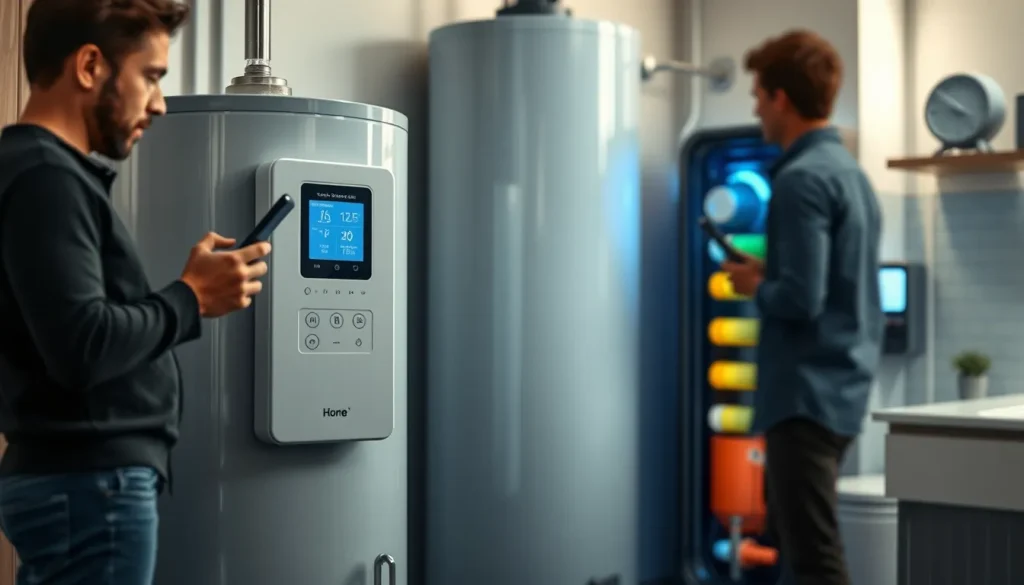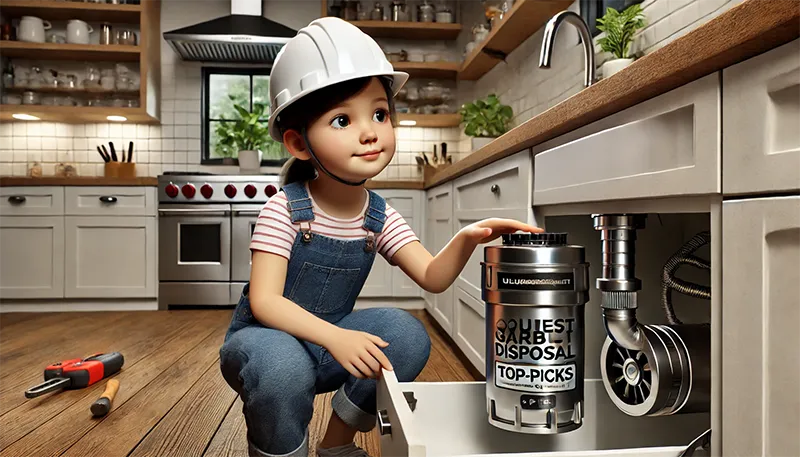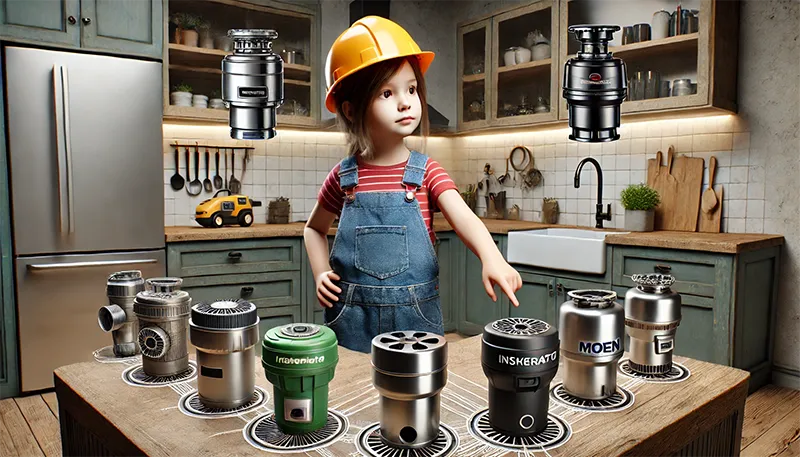In the era of smart homes and energy efficiency, homeowners are constantly seeking innovative ways to reduce their carbon footprint and lower utility bills. One often overlooked area with significant potential for improvement is the humble water heater. Enter smart water heater controller – the unsung heroes of home energy management. These ingenious devices are revolutionizing how we heat water, offering unprecedented control, efficiency, and savings. In this comprehensive guide, we’ll dive deep into the world of smart water heater controllers, exploring their benefits, top products, and how they can transform your home’s energy landscape.
The Hidden Energy Consumer in Your Home
Before we delve into the specifics of smart water heater controllers, it’s crucial to understand the impact of water heating on your home’s energy consumption. Water heating accounts for approximately 18% of a typical household’s energy use. This statistic underscores the significant role that water heaters play in our overall energy consumption and highlights the potential for substantial savings through improved efficiency.
Understanding Smart Water Heater Controllers
Smart water heater controllers are devices designed to optimize the performance of your water heater, whether it’s a traditional tank-style unit or a modern tankless system. These controllers leverage advanced technology to learn your household’s hot water usage patterns, adjust heating cycles, and provide remote control capabilities. The result is a more efficient, cost-effective, and environmentally friendly water heating solution.
How Smart Controllers Optimize Water Heater Performance
- Learning Algorithms: Many smart controllers employ machine learning algorithms to analyze your household’s hot water usage patterns. Over time, they can predict when hot water will be needed and adjust the heating schedule accordingly.
- Remote Control: Through smartphone apps or web interfaces, users can adjust water heater settings from anywhere, allowing for on-the-fly changes to accommodate unexpected schedule changes.
- Integration with Smart Home Systems: Advanced controllers can integrate with other smart home devices, such as thermostats or voice assistants, for a more cohesive and efficient home energy management system.
- Energy Usage Tracking: Most smart controllers provide detailed insights into your water heater’s energy consumption, helping you identify areas for further improvement.
- Leak Detection: Some models include sensors that can detect leaks early, potentially saving you from costly water damage and wasted energy.
Reducing Energy Consumption with Smart Controllers
The primary goal of smart water heater controllers is to reduce energy consumption without sacrificing comfort. They achieve this through several mechanisms:
- Optimized Heating Cycles: By learning when hot water is typically needed, controllers can ensure the water heater isn’t working unnecessarily during periods of low demand.
- Temperature Management: Smart controllers allow for precise temperature control, preventing overheating and reducing standby heat loss.
- Vacation Mode: When you’re away, these devices can put your water heater into an ultra-low energy consumption mode, further reducing waste.
- Demand Response: Some controllers can communicate with utility companies to optimize heating during off-peak hours, taking advantage of lower electricity rates.
Top Smart Water Heater Controllers Compared
Now that we understand the benefits of smart water heater controllers, let’s explore some of the top products on the market, with a focus on compatibility with tankless water heaters and features that prioritize energy savings, user-friendly technology, and cost-efficiency.
Aquanta Smart Water Heater Controller
Compatibility: Works with most electric and gas tank-style water heaters, with some models suitable for tankless systems
Installation: DIY-friendly, no plumbing required
Smart Features:
- Advanced learning algorithm
- Smartphone app for remote control
- Detailed energy usage tracking
- Integration with popular smart home platforms
Cost-Effectiveness: Potential savings of up to 15% on water heating costs
The Aquanta Smart Water Heater Controller stands out for its versatility and user-friendly design. While primarily designed for tank-style heaters, some models can work with tankless systems, making it a flexible option for various setups. Its learning algorithm is particularly impressive, adapting quickly to your household’s routines to maximize efficiency.
Rheem EcoNet Smart Water Heater Control
Compatibility: Designed specifically for Rheem water heaters, including tankless models
Installation: Professional installation recommended for optimal performance
Smart Features:
- Seamless integration with the EcoNet ecosystem
- Advanced leak detection and prevention
- Customizable vacation mode
- Energy usage reports and optimization suggestions
Cost-Effectiveness: Offers precise temperature control and scheduling for significant energy savings
The Rheem EcoNet Smart Water Heater Control is an excellent choice for those with compatible Rheem water heaters. Its deep integration with the EcoNet system allows for comprehensive energy management across multiple home systems. The leak detection feature adds an extra layer of protection, potentially saving homeowners from costly water damage.
TrickleStar Wi-Fi Electric Water Heater Controller
Compatibility: Compatible with electric water heaters, including some tankless models
Installation: Easy DIY installation with clear instructions
Smart Features:
- Flexible scheduling options
- Real-time energy monitoring
- Utility synchronization for optimal rate usage
- Simple, intuitive smartphone app
Cost-Effectiveness: Helps optimize energy use with time-of-use rates, leading to significant cost savings
The TrickleStar Wi-Fi Electric Water Heater Controller is an excellent option for those seeking a straightforward, cost-effective solution. Its ability to synchronize with utility rates is particularly valuable for homeowners in areas with variable electricity pricing, allowing for automatic adjustments to take advantage of lower rates.
EcoSmart Smart Boost Water Heater Controller
Compatibility: Designed for EcoSmart tankless electric water heaters
Installation: Typically requires professional installation for optimal performance
Smart Features:
- Precise temperature control within 1°F
- Remote access and control via smartphone app
- Energy usage tracking and optimization suggestions
- Integration with smart home systems for comprehensive energy management
Cost-Effectiveness: Can lead to up to 20% reduction in water heating costs through optimized performance
The EcoSmart Smart Boost Water Heater Controller is specifically designed for tankless electric water heaters, making it an ideal choice for homeowners with these systems. Its precise temperature control and integration capabilities make it a powerful tool for maximizing energy efficiency in tankless setups.
Honeywell Home Water Heater Controller
Compatibility: Works with most gas and electric tank water heaters, with some models suitable for tankless systems
Installation: DIY installation possible, but professional installation recommended for complex setups
Smart Features:
- Adaptive learning technology
- Integration with Honeywell Home ecosystem
- Customizable schedules and modes
- Detailed energy reports and savings estimates
Cost-Effectiveness: Users report average savings of 10-15% on water heating costs
The Honeywell Home Water Heater Controller offers a robust set of features and compatibility with a wide range of water heater types. Its integration with the broader Honeywell Home ecosystem makes it an attractive option for those already invested in this smart home platform.
Selecting the Right Smart Controller for Your Needs
Choosing the ideal smart water heater controller depends on several factors. Here’s a guide to help you make an informed decision:
- Compatibility: The first and most crucial factor is ensuring the controller is compatible with your existing water heater model. For tankless water heaters, look for controllers specifically designed or certified for use with these systems.
- Installation Requirements: Consider your comfort level with DIY installation. While many controllers are designed for easy self-installation, some may require professional setup, especially when integrating with complex home automation systems.
- Smart Home Ecosystem: If you already have other smart home devices, look for a controller that can integrate seamlessly with your existing setup. This integration can enhance overall energy management and provide a more cohesive user experience.
- Energy-Saving Features: Evaluate the specific energy-saving features offered by each controller. Look for options like learning algorithms, precise temperature control, and scheduling capabilities that align with your household’s needs.
- Remote Access: Consider how important remote control is to you. If you frequently adjust your schedule or travel often, robust remote access features can be particularly valuable.
- Cost and Potential Savings: Compare the upfront cost of the controller with its potential long-term savings. While some controllers may have a higher initial price, they might offer greater energy savings over time.
- User Interface: Look for controllers with intuitive smartphone apps or web interfaces that make it easy to monitor and adjust your water heater’s performance.
- Additional Features: Consider extra features like leak detection, maintenance alerts, or integration with utility company programs for demand response and optimal rate usage.
Maximizing Energy Savings with Smart Water Heater Controllers
To get the most out of your smart water heater controller and maximize energy savings, consider the following tips:
- Optimize Temperature Settings: Use the controller to find the lowest comfortable temperature setting. Even a few degrees can make a significant difference in energy consumption.
- Utilize Scheduling Features: Take advantage of scheduling capabilities to reduce heating during times when hot water is typically not needed, such as late at night or when the house is empty during work hours.
- Monitor and Analyze Usage: Regularly review the energy usage data provided by your controller. This information can help you identify patterns and opportunities for further optimization.
- Integrate with Other Smart Devices: If possible, integrate your water heater controller with other smart home devices like thermostats or occupancy sensors for more comprehensive energy management.
- Take Advantage of Vacation Modes: When you’re away for extended periods, use the controller’s vacation or away mode to minimize energy consumption while ensuring the system remains operational.
- Stay Updated: Keep your controller’s firmware and associated apps up to date to ensure you have access to the latest features and energy-saving improvements.
- Consider Time-of-Use Rates: If your utility offers time-of-use rates, configure your controller to heat water during off-peak hours when electricity is less expensive.
Environmental Benefits of Smart Water Heater Controllers
Beyond the immediate financial savings, smart water heater controllers offer significant environmental benefits:
- Reduced Energy Consumption: By optimizing water heating, these controllers directly contribute to lower overall energy usage, reducing the demand on power plants and associated carbon emissions.
- Improved Efficiency: Smart controllers help water heaters operate more efficiently, extending their lifespan and reducing the need for premature replacements, thus conserving resources.
- Support for Renewable Energy: Some advanced controllers can be programmed to prioritize heating when renewable energy sources (like solar panels) are producing excess power, further reducing reliance on fossil fuels.
- Water Conservation: By providing insights into hot water usage patterns, these controllers can indirectly encourage more mindful water consumption.
- Grid Stability: Through demand response programs, smart controllers can help balance the electrical grid, potentially reducing the need for additional power plants and supporting the integration of more renewable energy sources.
FAQs
To address common concerns and provide additional clarity, here are some frequently asked questions about smart water heater controllers:
Q: Can smart controllers work with any water heater?
A: While many smart controllers are designed to work with a wide range of water heaters, compatibility can vary. It’s essential to check the specific requirements of each controller and ensure it’s compatible with your water heater model, especially for tankless systems.
Q: How much can I save with a smart water heater controller?
A: Savings can vary depending on factors like your current water heating costs, usage patterns, and the specific features of the controller. However, many users report savings of 10-15% on their water heating costs, with some seeing even higher reductions.
Q: Do these controllers require professional installation?
A: Installation requirements vary by model. Many controllers are designed for DIY installation, with clear instructions and minimal tools required. However, some may benefit from professional setup, especially if integrating with complex home automation systems or if you’re uncomfortable working with electrical components.
Q: Will a smart controller work if my internet goes down?
A: Most smart controllers have offline modes that allow basic functionality even without an internet connection. However, advanced features like remote control and real-time energy monitoring may be unavailable until the connection is restored.
Q: Can I still manually control my water heater with a smart controller installed?
A: Yes, most smart controllers allow for manual override, either through physical controls on the device or through the associated smartphone app, even when offline.
Q: Are smart water heater controllers worth the investment for tankless systems?
A: While tankless water heaters are generally more efficient than tank-style heaters, smart controllers can still offer benefits in terms of precise temperature control, scheduling, and integration with broader home energy management systems. The value will depend on your specific usage patterns and energy costs.
Q: How long does it take for a smart controller to learn my household’s habits?
A: The learning period can vary by product, but most controllers start to adapt within a week or two of installation. However, they continue to refine their algorithms over time for increasingly accurate predictions and optimizations.
Conclusion: Embracing Smart Water Heating for a Sustainable Future
Smart water heater controllers represent a significant leap forward in home energy management. By offering precise control, learning capabilities, and integration with broader smart home ecosystems, these devices empower homeowners to significantly reduce their energy consumption and costs associated with water heating. The benefits extend beyond individual households, contributing to broader environmental sustainability goals by reducing overall energy demand and supporting more efficient use of resources.
As we continue to seek ways to create more sustainable and efficient homes, smart water heater controllers stand out as a relatively simple yet highly effective upgrade. They offer a perfect blend of convenience, cost savings, and environmental responsibility, making them an attractive option for homeowners at various levels of tech-savviness and environmental consciousness.
The future of home energy management is undoubtedly smart, and water heating is a critical piece of this puzzle. By embracing technologies like smart water heater controllers, we not only enjoy more comfortable and efficient homes but also contribute to a more sustainable future for all.
We encourage you to share your thoughts on smart water heater controllers or your experiences with them in your next social media post. How much do you think you could save with this technology? Have you already implemented smart water heating in your home? Your insights could inspire others to take this important step towards a more energy-efficient lifestyle.



